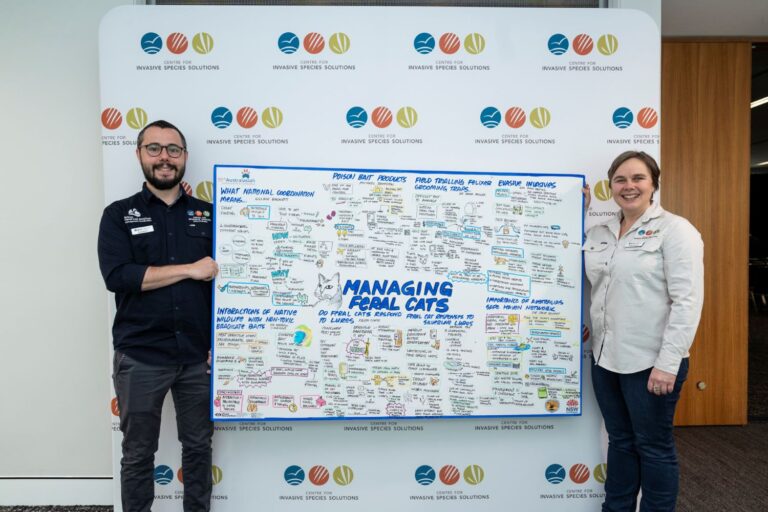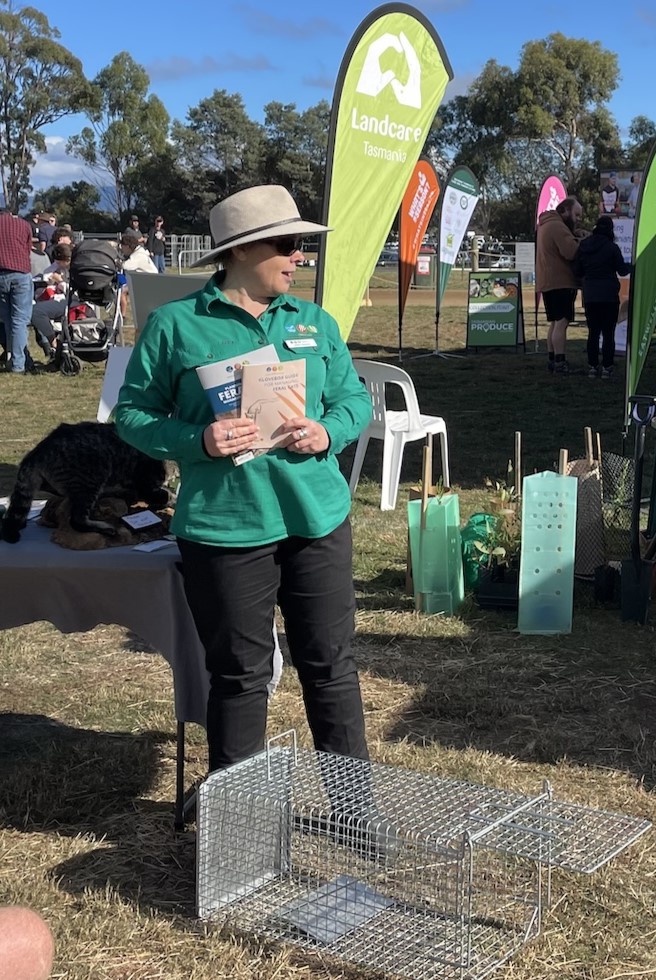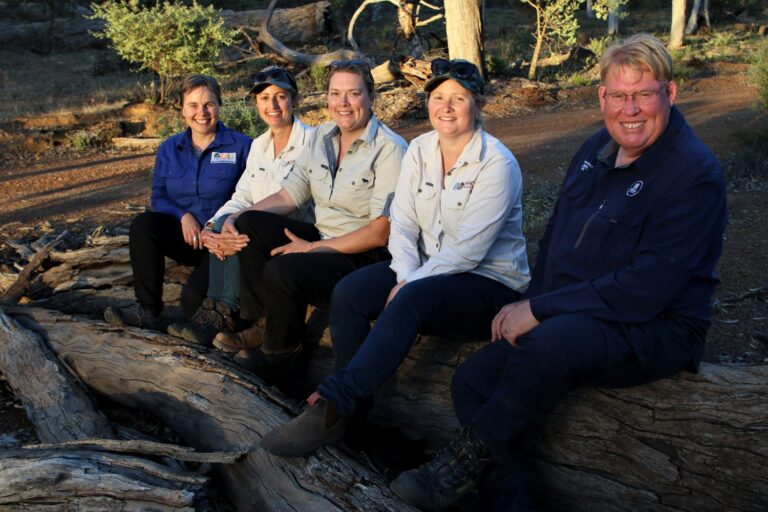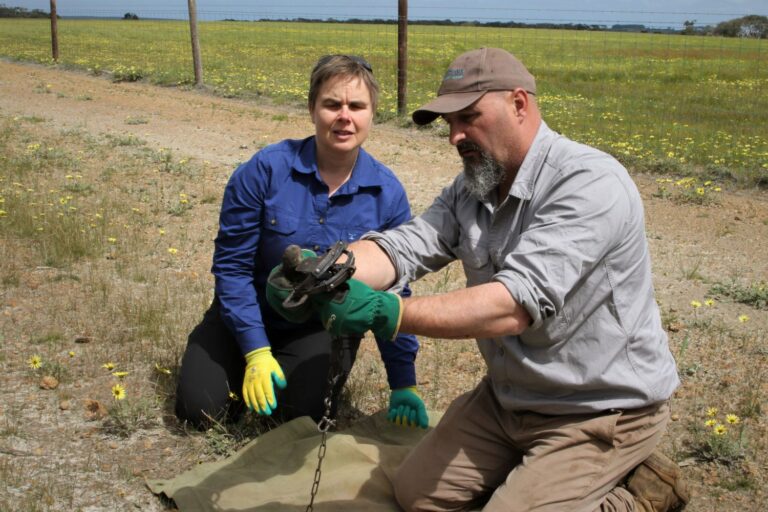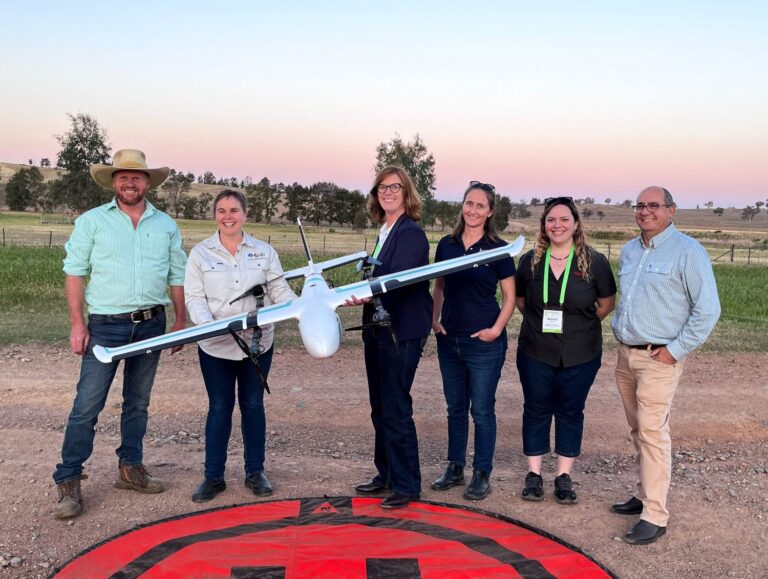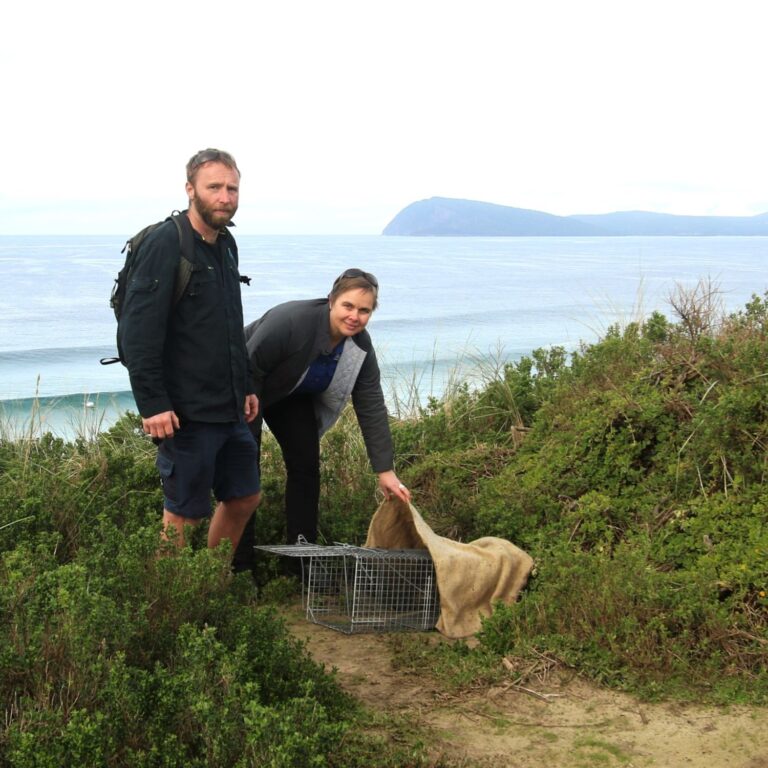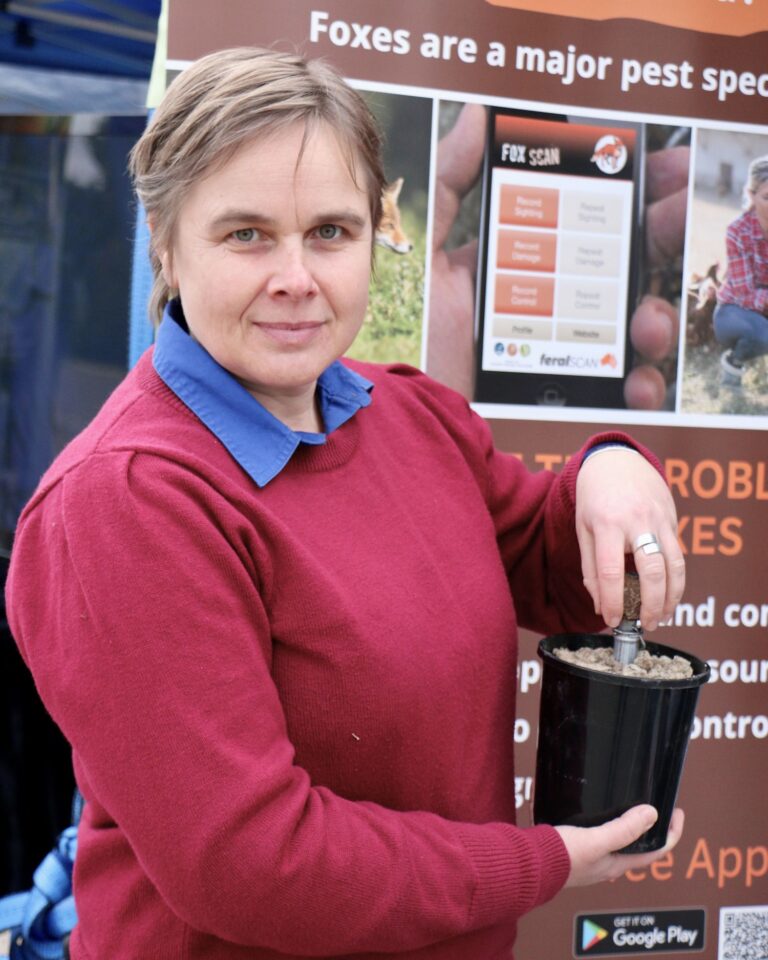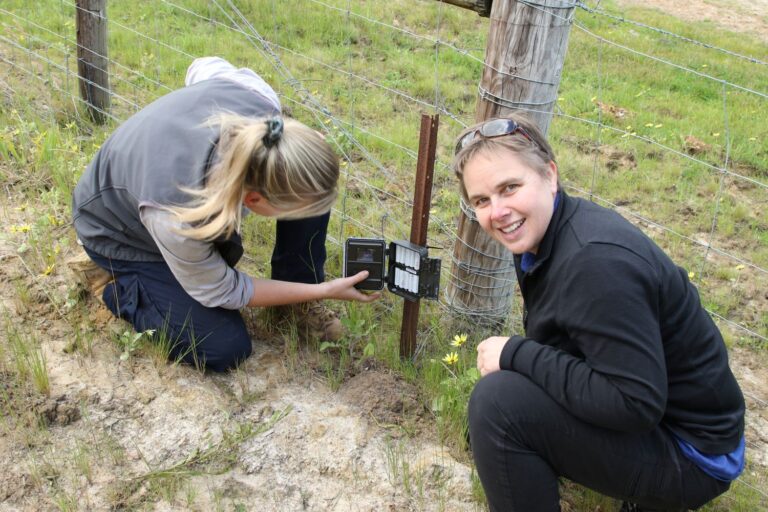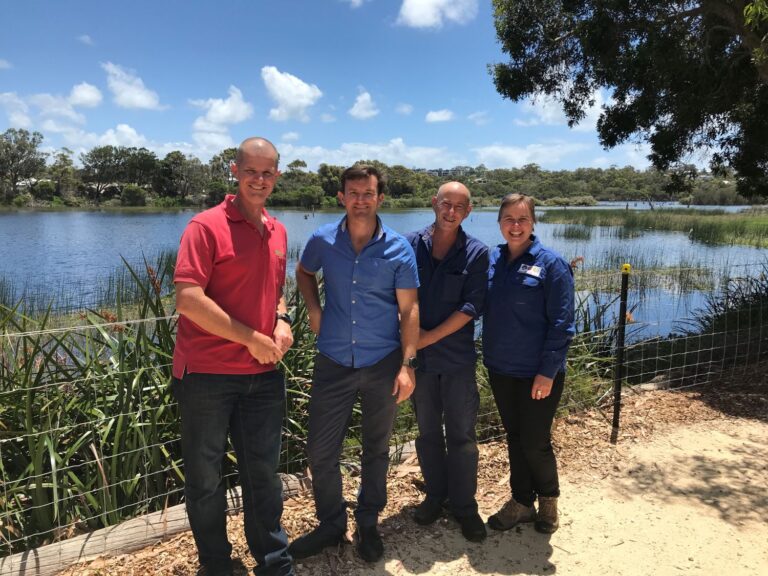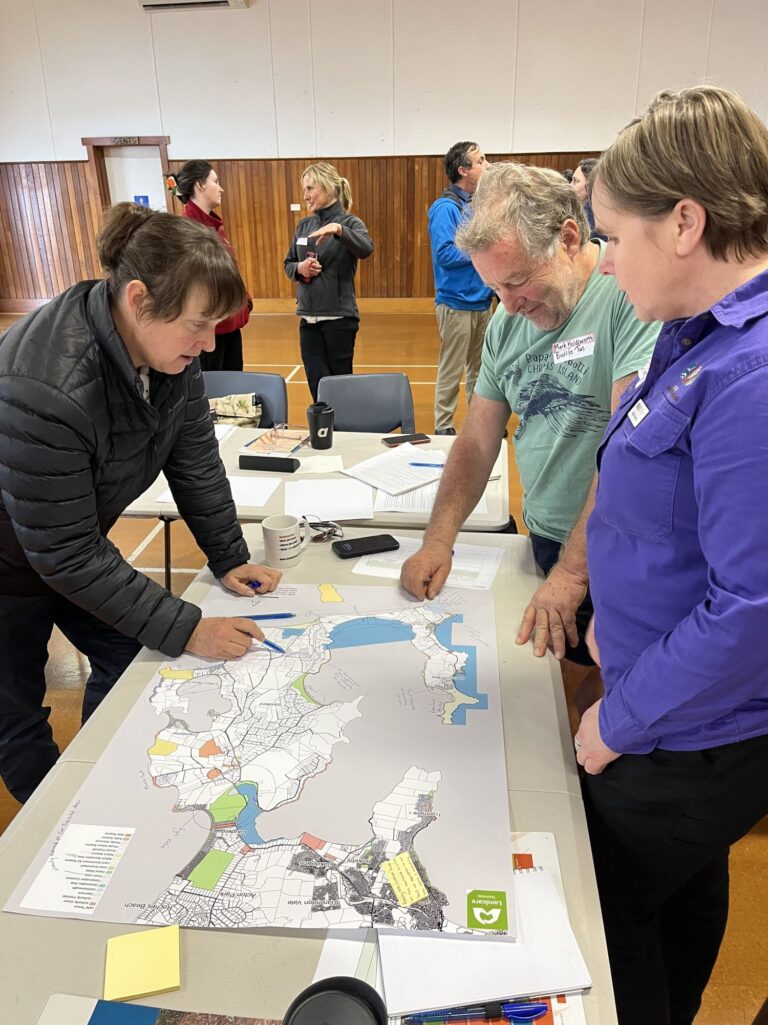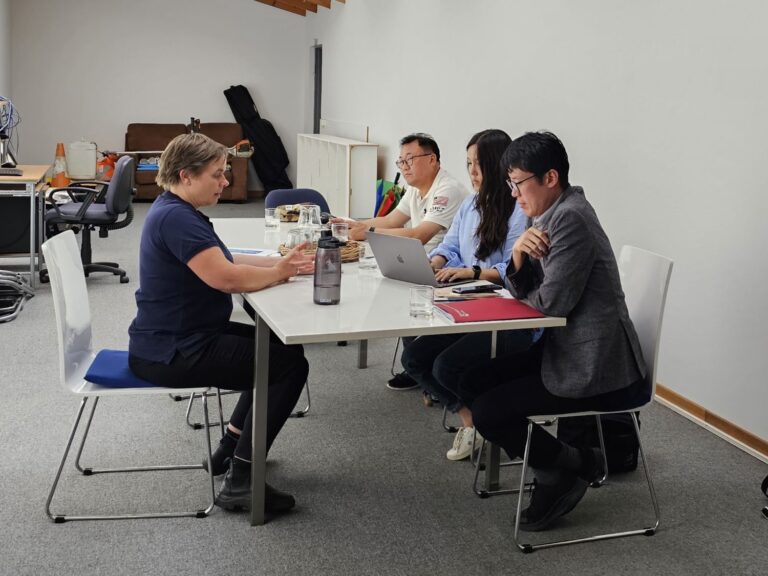Farewell and thank you to Gillian Basnett – Our first National Feral Cat and Fox Management Coordinator
After more than three years leading Australia’s national effort to reduce the impacts of feral cats and foxes, Gillian Basnett is wrapping up her time with CISS. As the inaugural National Feral Cat and Fox Management Coordinator, Gillian has worked tirelessly with partners, land managers, researchers and communities across the country to build awareness, drive collaboration, and deliver practical solutions to two of Australia’s most damaging predators.
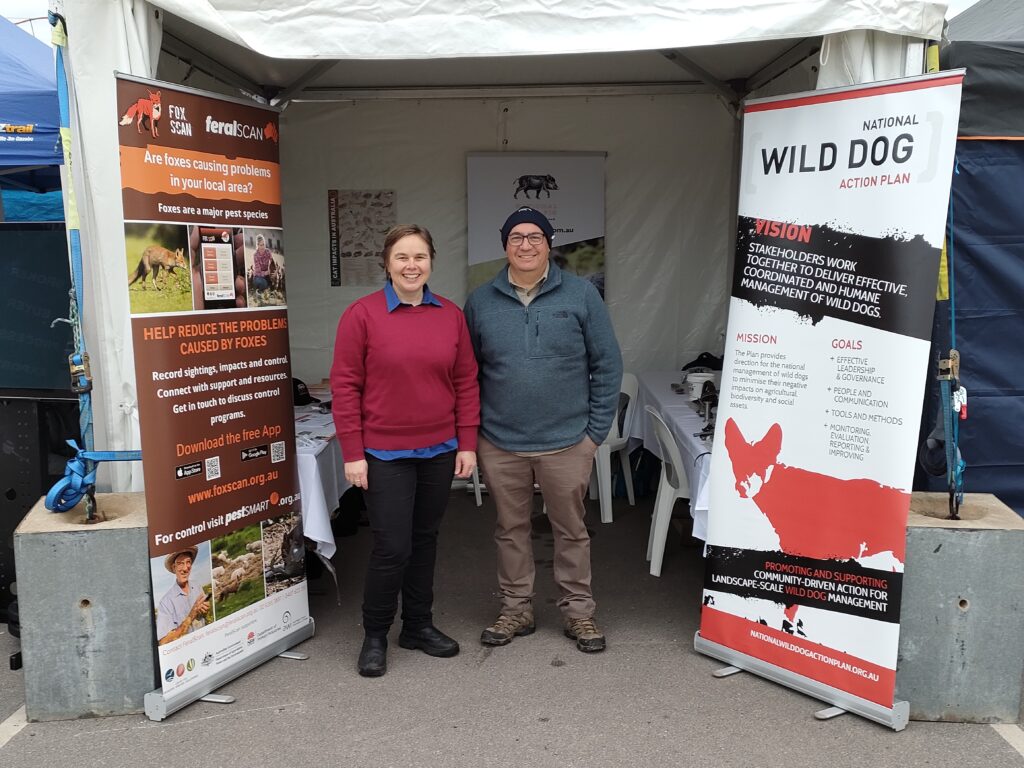
In this interview, Gillian reflects on her journey with CISS, what drew her to invasive species management, the people and projects that inspired her, and her hopes for Australia’s biosecurity future.
CC: Can you give a brief history of your career and time with CISS?
GB: I started with CISS back in August 2021 as the first ever National Feral Cat and Fox Management Coordinator. I joined the three other National Coordinators then in place, Greg Mifsud, Annelise Weibkin and Heather Channon covering wild dogs, feral deer and feral pigs respectively.
Since then, I’ve worked with CISS staff and many pest and land managers and researchers, communities and landholders across Australia to set up and deliver an engagement, education and training program to reduce the impacts of feral cats and foxes on Australia’s environment, agricultural production and communities.
CC: What prompted a career in invasive species?
GB: Honestly, it was timing. I had just completed another contract – setting up a fire management on private property program in Tasmania – when this job popped up.
A friend told me about it and I decided to apply. I am an ecologist with a deep love for the environment, a passion for sharing that with others and helping people understand the pressures our plants and animals face and what we can do about it.
I knew that feral cats and foxes are two huge threats to our wildlife and also sustainable agriculture in many areas and was keen to help. The job looked interesting and so I thought I would give it a crack. I knew about the impacts and how to talk to people. However, I shall be forever grateful to everyone who shared their knowledge about effective management, legislation and all the amazing research and management programs being undertaken. Without their input, I wouldn’t have got the program to where it is today. A true team effort.
CC: Tell us a bit about your career highlights.
GB: The people. I have worked in some amazing places across Australia and been involved in some interesting projects with a range of threatened and other species. It’s been an immense privilege. However, it is the people that I have worked with and communities, groups and landholders I have helped that has made it the most satisfying. I like seeing that light of understanding dawn on people, and assisting people and groups achieve programs to help with environmental conservation, agriculture sustainability and even sustainable living.
CC: Tell us a bit about your career lowlights.
GB: Sometimes it can be frustrating. Having a good community of people around me helps keep me going and celebrating the wins when they come is key. I also find a good healthy dose of nature or a good laugh can really help.
CC: Tell us a bit about your fears for the future of invasive species’ impacts in Australia.
GB: That we won’t act quickly enough or use the right tools in the right way at the right time for effective management of the invasive species already in Australia, let alone the ones yet to come.
As Australians, we need to work together to navigate hard choices and conversations so we can defend our incredible environment, keep our agricultural sector sustainable and strong and protect our communities.
CC: On the flipside, can you tell us a bit about your hopes?
GB: I have met so many passionate, intelligent, hard-working people. The skilled and knowledgeable older guard, willing to share their insights and experience with others. Passionate young folk, wanting to make a difference, questioning and eager – not only keen to learn but even more keen to do. I have talked to plenty of communities and people about how and why we must undertake effective, ongoing, coordinated invasive species management including lethal control with toxins like 1080. Through mine and other’s efforts, I have seen support for this increase as people’s understanding about the need to do this grows. I have great hope in these people.
CC: What’s next for you and will we see you back in invasive species management again in some capacity in the future?
GB: Who knows where to next. First stop, Africa. Somewhere I have wanted to go to my whole life, thanks mostly to growing up with David Attenborough. Then, we shall see.
I want to keep helping people and helping the environment, so I am sure it will continue to be in a similar space. Once you start to learn about the impacts of invasive species’ I don’t think you ever stop trying to do something about it. Whether it is being careful about what you plant in the garden, pulling out weeds and picking up rubbish when out walking or talking to people about best practice management.





